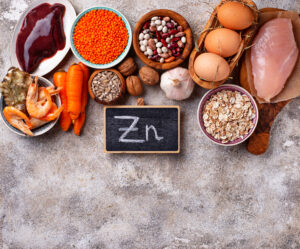If you suffer from frequent yeast infections, try natural home remedies such as probiotics, eliminating sugary foods from your diet and wearing cotton underwear to combat them.
Vitamin C helps strengthen immunity while chamomile tea soothes inflammation. Oil of oregano also has antifungal properties; you can find suppositories containing this oil online or in health food stores.
Apple cider vinegar
ACV can be an effective natural remedy for many medical conditions; however, its efficacy against yeast infections remains uncertain. Vinegar’s acidity could alter vaginal pH balance, increasing chances of candida overgrowth.
Add vinegar to your bath or use ACV as a douche and it may aggravate existing skin conditions, cause an unpleasant burning sensation and is not advised during pregnancy.
Garlic has long been seen as an effective natural solution to yeast infections. While garlic contains antifungal properties, its use alone isn’t enough; in fact, it may worsen an existing infection. While allicin, found in minced garlic, has been linked with decreased risks for infections; its use cannot be relied upon as an absolute cure-all solution.
Over-the-counter antifungal creams and suppositories may offer relief for yeast infections; however, if symptoms recur or worsen significantly, seek medical advice immediately. While yeast infections are generally harmless, discomforting symptoms could worsen over time without medical intervention; symptoms can often resemble other illnesses and so seek professional medical attention immediately if you suspect a yeast infection may exist.
Garlic
Garlic, known for its antifungal properties, may help alleviate yeast infections. Lab studies have proven allicin to effectively kill Candida fungi. Allicin can either be taken orally or applied directly to the skin as an oral supplement; taking an oral garlic supplement may reduce frequency but does not cure infections.
Women struggling with a yeast infection often resort to natural home remedies like yogurt, garlic and tea tree oil as treatments. While some are safe, others can promote yeast growth and worsen inflammation – potentially dangerous options if pregnant or suffering from an unknown health issue.
Many people recommend inserting whole cloves of garlic as a treatment for yeast infections; however, there is limited clinical evidence supporting such advice. Instead, women can try applying oil of oregano on a suppository and inserting it nightly instead of whole garlic cloves; lemongrass and tea tree oils can also be tried but require further research to prove their efficacy as at-home treatments.
Vitamin C
Vitamin C is an antioxidant that strengthens immunity and may prevent yeast overgrowth, and can be found in citrus fruits, tomatoes and supplements. While its application to vagina may help, as it’s an acidic solution it should not be applied directly there as this could irritate it further.
Yeast infections are caused by an overgrowth of Candida albicans fungus that naturally lives in the vagina, especially for women taking antibiotics, pregnant or postpartum, menstruating, taking certain birth control pills or being on their period. Other factors which may promote an increase in yeast infections include eating too much sugar and drinking alcohol.
Home remedies often involve applying a mixture of coconut oil and oregano oil on the affected area as an antifungal treatment for yeast infections. Oregano oil has proven itself as effective as clotrimazole vaginal cream for treating yeast infections; tea tree oil may also help alleviate symptoms, but consult a gynecologist first before applying essential oils directly onto sensitive skin to avoid irritation or further problems.
Tea tree oil
Homeopathic tools like tea tree oil and coconut oil do not appear to offer effective relief for women suffering from yeast infections, but may offer temporary respite from symptoms. Instead, women experiencing repeated outbreaks should talk with their physician and consider lifestyle modifications before seeking a prescription of fluconazole or other antifungal medication to ensure more lasting treatment results.
Most individuals with yeast infections are suffering from an overgrowth of candida albicans fungus. Under normal circumstances, other bacteria are kept in check by this fungus, but antibiotic use, pregnancy hormonal fluctuations, or other factors can disturb this balance and trigger its proliferation into an infection.
Tea tree oil is an antifungal agent commonly found in over-the-counter skincare products and household cleaners. Additionally, it’s often an ingredient in herbal treatments for skin conditions like rashes and other ailments, like itching. Unfortunately, undiluted tea tree oil may irritate sensitive vulva areas; to limit irritation only apply it with cotton swabs several times each day or mix into carrier oil to make suppositories that will be placed overnight into vagina.
Probiotics
Probiotics have proven surprisingly effective for treating yeast infections. Probiotics work by neutralizing any microorganisms present that contribute to infection; such bacteria are found in yogurt, kefir and many supplements; experts advise opting for products containing Lactobacillus strain as this has proven most successful against C. albicans growth.
Some people use garlic as an antifungal agent; however, studies have revealed that eating garlic won’t prevent future infections from returning.
Tea tree oil has proven itself effective against Candida’s overgrowth. You can find this remedy in suppositories or creams you insert at night; or warm coconut oil applied directly onto your genital area can act as a carrier for more powerful antifungal essential oils like oregano and lemongrass that have powerful antifungal effects.
Obstetrician Kathryn Goebel cautions that there is little scientific evidence supporting any home remedies for treating active yeast infections. If your condition persists and pain persists, seek medical advice immediately as you may require prescription-strength antifungal medication to combat it.





